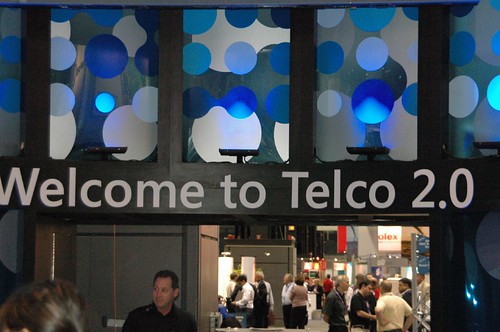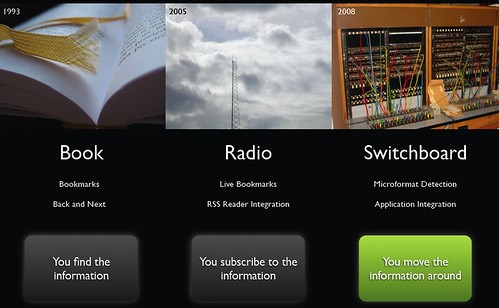Rage against the machine
One of the issues most discussed in the last ITS Rome conference was what is a reasonable use of broadband. The concern arise from heavy users activity, which in another example of Long Tail takes most of Telcos resources for downloading huge files.
I´d like to raise another similar issue, which I´d like to call reasonable customer service. Two weeks ago my ISP broadband speed went down for a factor of 100 in the last month, from an average of 50 kbps to less than 1kbps. Two orders of magnitude is too much -a simple Gmail web page would take about 2 minutes, so I feel back in Dial-up years-. Whenever I rise this issue to Arnet, my broadband provider, the answer would be "have you changed something?"or "Is your modem the one that we gave you"? or "Probably your PC have a virus". There is no way they could send me a person to check the whole thing -in spite I am one of these strange persons willing to pay-. Experience, on the other hand, shows me if the failure is that sudden, the Telco may have a problem. My two cents on this: plot the monthly broadband churn against telephone switches. You´ll be surprised.
So I understand that in some countries heavy users activities are being reviewed; but I´d like a similar approach from ISPs Customer Service. Don´t blame customers, treat them well, consider the ARPU you´re getting.... and that Data Services are not compatible with some answers and with Dial-up speeds.





























